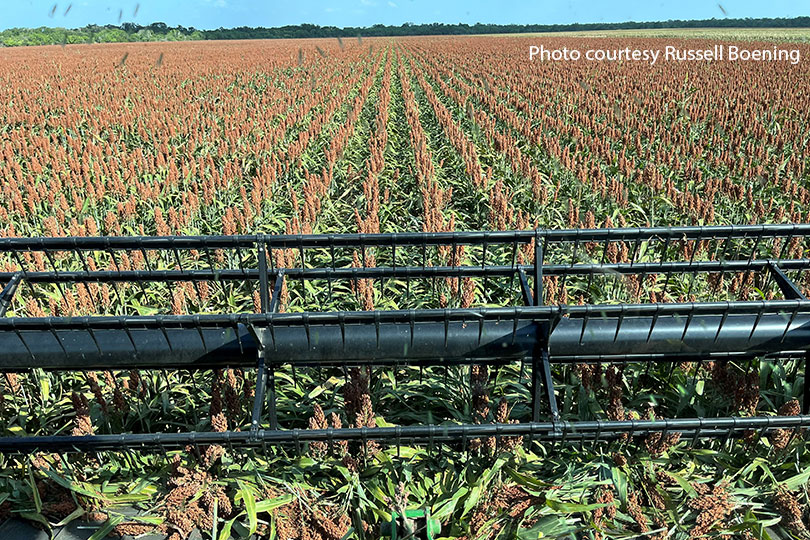By Emmy Powell
Communications Specialist
Extreme drought and relentless heat have taken a toll on Texas crops.
For Russell Boening, harvest on his South Texas farm was earlier and disappointing.
“Everything was a little bit earlier. We’re finished with our irrigated corn, little disappointed there, but with the heat and dry winds we just couldn’t keep it wet enough,” Boening, who is the president of Texas Farm Bureau, said. “The irrigated grain sorghum’s turning out pretty good. Our dryland grain sorghum is pretty much a failure.”
Failed crops have been the norm this year with farmers across the state facing varying levels of drought.
The dry, cracked ground and triple-digit heat is eerily similar to the drought of 2011. But many farmers say this drought is worse. Boening’s been farming for over 40 years and this drought is one for the record books.
“We’ve had about 2.5 inches of rain since Nov. 1,” he said. “I can’t remember it being quite this dry ever, and I remember some dry years.”
The heat isn’t affecting only crop yields. It’s impacting milk production on Boening’s farm, too.
To manage high temperatures, he set up fans and misters, which help keep the cows cool.
“They pretty much quit eating. And when a dairy cow quits eating, they quit producing. So, it’s hard on them. We try to keep them cool, keep them healthy and look forward to the first cold front,” he said in an interview with the Texas Farm Bureau Radio Network.
Many ranchers are selling cattle as noted by the long lines at sale barns across the state.
“We haven’t sold any cattle yet. We’ve come close,” he said. “I know a lot of folks have, and it’s a tough decision. You have a beef herd that you’ve built up. You know your cows. You know what they’re capable of, and it’s just hard to let them go if they’re still in the prime of their productive life.”
But hay is a scare commodity this year.
Boening fortunately baled some irrigated coastal and milo stubble.
Like others, his ponds are low.
“We have several that are to the point of practically drying up, and that gets to be a little bit dangerous if your cows are depending on them for water,” he said. “We try to have troughs and wells almost everywhere. It’s a little bit more expensive, but we try to do that. Our irrigation water is holding okay, but we’re pumping with the same amount of horsepower, and we’re pumping less water. But we’re not out.”

